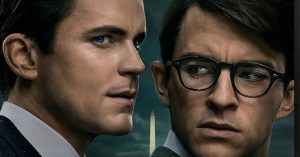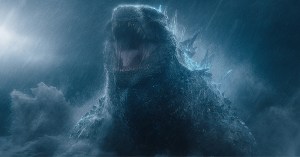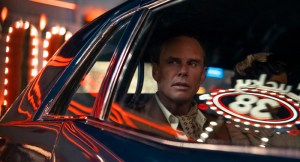Jeff Daniels’ 10 Best Movies
We count down the best-reviewed work of the Dumb and Dumber To star.
Always an actor first and celebrity second, Jeff Daniels has appeared in scores of films over the last three decades and change without ever commanding a superstar level of attention — but as even a cursory glance at his filmography makes clear, he has a marvelous knack for choosing projects, one that extends to his work on the stage (where he’s earned a Tony nomination) and the small screen (where he won an Emmy for his work on The Newsroom). This weekend, Daniels reunites with his old pal Jim Carrey for the Dumb and Dumber sequel Dumb and Dumber To, and to celebrate, we’ve decided to turn our attention to his most critically beloved efforts. It’s time for Total Recall!
10. Fly Away Home 87%
Little kids and animals often trigger Cuteness Overload warnings for filmgoers over the PG-13 age barrier, and that can be especially true for sun-dappled dramas starring grizzled Hollywood veterans playing emotionally broken parents fumbling to reconnect with their children while also racing against time to solve some critical little kid/animal dilemma. Pretty much all of those boxes are ticked in 1996’s Fly Away Home, but the end result is affecting enough to tug a few strings in all but the hardest of hearts — due in large part to a pair of top-shelf performances from Jeff Daniels and Anna Paquin, starring here as a father-daughter duo who move beyond their painful past in order to save a flock of geese. Saying that the movie’s “tender beauty… goes well beyond what might be expected from a movie about things that hatch,” Janet Maslin of the New York Times applauded director Carroll Ballard for turning “a potentially treacly children’s film into an exhilarating ’90s fable” and added, “See it and you will never look at a down comforter in quite the same way.”
9. The Lookout 87%
Out of Sight and Get Shorty screenwriter Scott Frank made his directorial debut with The Lookout, starring Joseph Gordon-Levitt — then just beginning to demonstrate the knack for picking scripts that had helped him earn raves for Brick two years before — as a callow high school athlete whose foolishness leads to a catastrophic accident that turns his entire life upside down…and puts him in the path of a group of bad people who want to use him for their own nefarious ends. Co-starring Daniels as Gordon-Levitt’s blind roommate and Isla Fisher as the seductive, memorably named Luvlee Lemons, The Lookout didn’t have much of an impact at the box office, but it earned plenty of praise from critics like the AV Club’s Scott Tobias, who wrote that its “thriller elements could stand to be more surprising, but they’re ultimately in service of a better understanding of the characters. Usually, it’s the other way around.”
8. Something Wild 92%
It’s refreshing whenever an actor plays against type, but there’s also something to be said for a script that lets a star sit directly in his or her wheelhouse; for example, here’s Something Wild, in which Daniels plays a buttoned-down stockbroker who makes the fateful decision to accept a ride home from a vivacious stranger (Melanie Griffith), thus setting off a chain of events that finds him an unwilling participant in all manner of ill-advised hijinks — including fending off her enraged husband (Ray Liotta). Subversive, willfully quirky, and thoroughly well-acted, Wild earned applause for its stars as well as for director Jonathan Demme; as James Kendrick wrote for Q Network Film Desk, “The tones shift rampantly, which for some viewers can be disorienting and off-putting. But, if you’re in tune with Demme’s aesthetic, which usually runs counter to our cinematic intuition, it is a wild ride indeed.”
7. Terms of Endearment 81%
Daniels made his cinematic debut in Milos Forman’s 1981 epic Ragtime, but he got his first big break two years later in Terms of Endearment. Writer-director James L. Brooks, working from Larry McMurtry’s novel about the complicated lives and relationships of a mother (Shirley MacLaine) and daughter (Debra Winger), fashioned a critical and commercial sensation that grossed more than $100 million and picked up 11 Oscar nominations (winning five). While none of those trophies went to Daniels, he did earn positive notice for his supporting role as Winger’s rather scummy (and ridiculously named) husband, Flap Horton, and he was hardly alone among an almost uniformly praised cast; as John Ferguson so succinctly put it for Radio Times, “This is American mainstream movie-making at its best.”
6. The Purple Rose of Cairo 93%
After catching Hollywood’s eye in Terms of Endearment, Daniels wasted no time racking up further accolades, picking up a starring (and Golden Globe-nominated) role in Woody Allen’s The Purple Rose of Cairo. Starring Mia Farrow as a mousy waitress toiling her way through a fairly dismal marriage to a rough-tempered drunk (Danny Aiello), the movie offers its heroine an unexpected boost in the form of a movie character (Daniels) who steps out of the screen and into her life. (As she tells her sister, “I just met a wonderful man. He’s fictional, but you can’t have everything.”) Critics were similarly smitten. “To be blunt about it, The Purple Rose of Cairo is pure enchantment,” gushed Vincent Canby of the New York Times. “It’s a sweet, lyrically funny, multi- layered work that again demonstrates that Woody Allen is our premier film maker who, standing something over 5 feet tall in his sneakers, towers above all others.”
5. Arachnophobia 93%
Frank Marshall (backed here by his longtime production partner Steven Spielberg) made his directorial debut with this affectionate, cheerfully creepy tribute to classic Hollywood creature features, in which a deadly breed of spider terrorizes a small town whose residents include a lunatic exterminator (John Goodman) and, of course, a doctor with the titular phobia (Jeff Daniels). “That sound you hear in the background is the ‘ugh!’ heard round the world,” chuckled Janet Maslin of the New York Times, adding, “luckily, Arachnophobia will also be generating its share of boisterous, nervous laughter.”
4. Speed 95%
After Die Hard blew up at the box office, action movies where the setting served as a sort of co-star became a wildly popular trend — to the point where, when Keanu Reeves starred in 1994’s Speed as an LAPD officer trapped on a moving bus that a maniac (Dennis Hopper) has loaded with explosives, it seemed safe to assume that it was just one more of the “Die Hard on a _____” movies that had clogged the cineplex for the past several years. Happily, this one proved a sleekly thrilling exception to the rule, both at the box office — where it racked up more than $350 million worldwide — and among critics, who applauded director Jan de Bont’s lean production, the movie’s uncommonly intelligent screenplay (given an instrumental polish by Joss Whedon), and a terrific cast that also included Sandra Bullock, Alan Ruck, and as Keanu’s steadfast partner, Jeff Daniels. Calling it “clean, delirious, and, yes, speedy,” the New Yorker’s Anthony Lane deemed it “the best big-vehicle-in-peril movie since Clouzot’s The Wages of Fear.”
3. The Squid and the Whale 91%
Round up all the characters in every Noah Baumbach movie, and you’d have yourself a room full of some fairly messed up individuals. Case in point: 2005’s The Squid and the Whale, starring Daniels and Laura Linney as a husband and wife whose messily splintering marriage throws shards that wound their two sons (played by Jesse Eisenberg and Owen Kline) — not that either of the parents seem willing or able to put a stop to their selfish behavior. Like many of Baumbach’s films, Squid puts the viewer in the company of narcissists and misanthropes, but it’s also a piercingly honest look at the ways in which we deal with disappointment when our lives — and our loved ones — let us down. As Roger Ebert put it, “The Squid and the Whale is essentially about how we grow up by absorbing what is useful in our parents and forgiving what is not.”
2. Good Night, and Good Luck 93%
For his directorial follow-up to Confessions of a Dangerous Mind, George Clooney decided to dramatize Senator Joseph McCarthy’s Communist witch hunt — specifically from the viewpoint of CBS News, where legendary anchor Edward R. Murrow (David Strathairn) engaged in a public war of wills against McCarthy while trying to temper the mass hysteria wrought by his adversary’s rabid insistence that all levels of American life had been infiltrated by the Red Menace. Rounded out by a stellar supporting cast (including Daniels as CBS News director Sig Mickelson), Good Night, and Good Luck. earned an impressive six Academy Award nominations — as well as our own Golden Tomato for Best Reviewed Film of 2005 in Limited Release. “By its end,” enthused Movie Mezzanine’s Sam Fragoso, “Good Night, and Good Luck evolves into a prophetic vision of how television and film can be used to illuminate or insulate, educate or entertain.”
1. Looper 93%
A large part of Jeff Daniels’ considerable screen appeal has always been his ability to project an unassuming everyman aura, but acting opposite Joseph Gordon-Levitt seems to bring out the oddball in him: After stealing every scene he was in as Gordon-Levitt’s roommate in The Lookout, Daniels proceeded to do the same in Looper, injecting writer-director Rian Johnson’s thought-provoking sci-fi thriller with a madcap blast of energy as the sociopathic (and perversely likable) mob boss who orders Levitt’s hit man character to kill…well, we don’t want to spoil the fun if you haven’t already seen the movie. Point is, Looper is a lot of fun, not least because of Daniels’ performance, as well as what Deadspin’s Will Leitch called “A wildly entertaining film that isn’t content with science and cinematic tricks. It desires, and achieves, much more.”
Finally, here’s Daniels putting in a plug for his home state:






